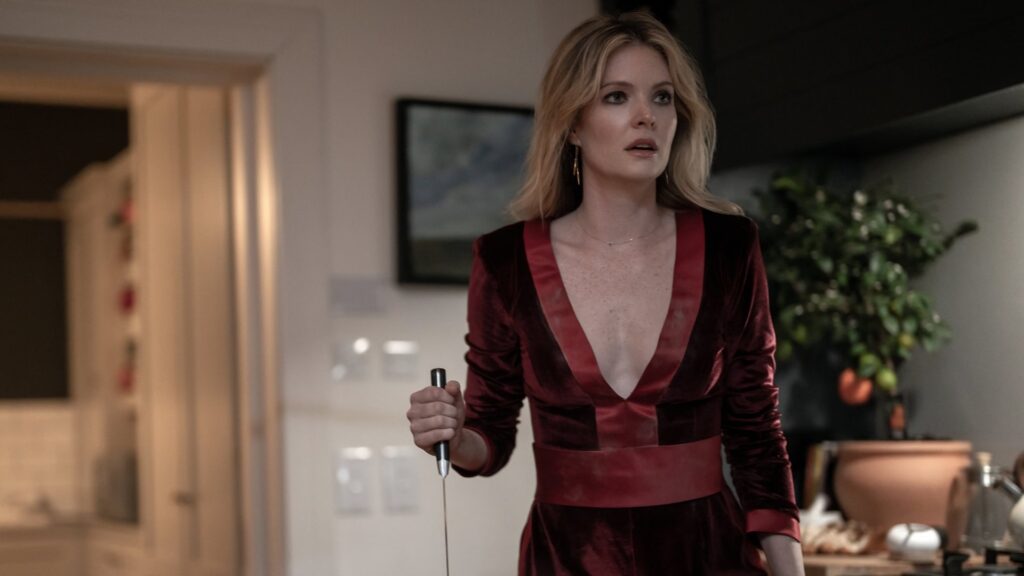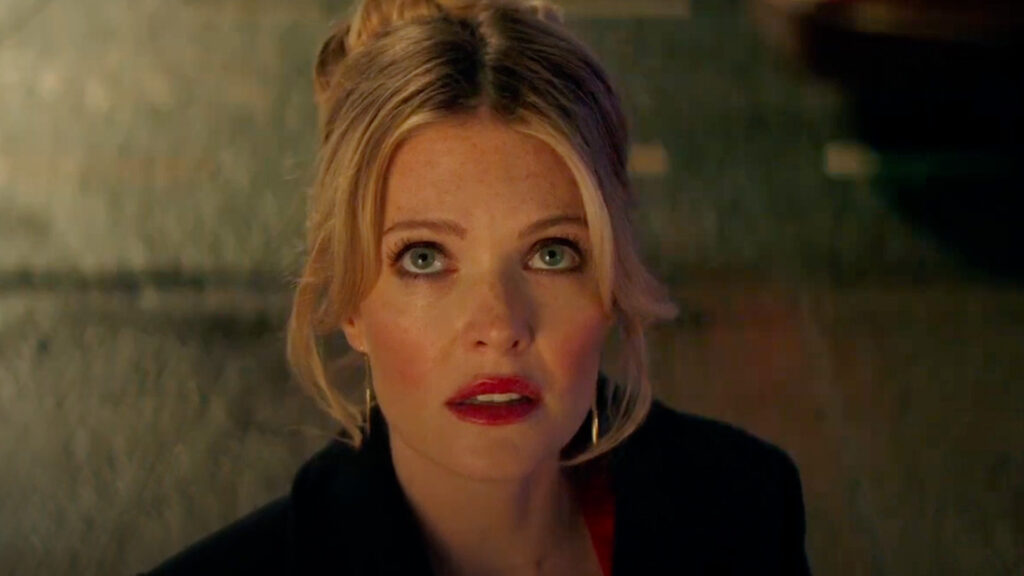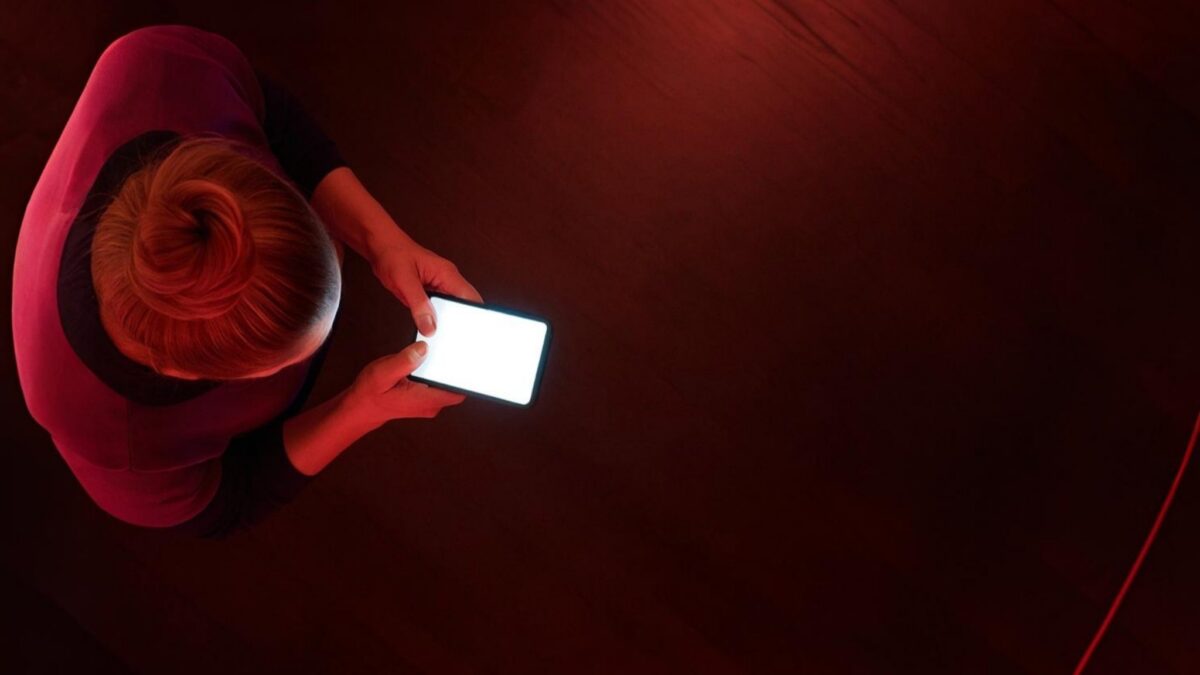Like it's hot
I’ve been using the term “thriller” a lot recently, perhaps too casually, as if any film that includes at least one jump scare, one chase scene, and a suggestion of threat to the protagonist’s life qualifies. But Drop reminded me that there’s a key ingredient I’d been missing when applying the label to the likes of Death of a Unicorn and Opus: Suspense. Not just basic narrative stakes and conflict, but the sensation that borders on physiological, clenching and anxious. I had forgotten new releases could even deliver such a feeling. But, joy: Drop provides.
The latest from horror-comedy workhorse Christopher Landon, Drop sees the Happy Death Day and Freaky director stepping outside his usual slasher remix sandbox. This time he trades high concept stabbing for something slightly more conventional, a single-location, real-time thriller with old-school bones — Hitchcockian in construction but unabashedly from the iPhone era. While watching, my mind ran to Grand Piano, the 2013 gem about a piano player whose life depends on playing every note correctly. Like that film, Drop operates on a high-strung premise involving secret communication that’s just a few notches past plausible, but gets you to buy in and pulls it off, your heart rate rising in linear correlation with the progressing runtime.
(Last year’s Carry On scratched a similar itch, and multiple reviews have referenced Red Eye and Phone Booth, which I have not seen. I have decided I will add all films I can find in the “stuck in this dangerous room for 90 minutes” subgenre to my watchlist.)

We open with Violet Gates (Meghann Fahy), a Chicago therapist and single mother, finally dipping her toe back into the dating pool after the death of her abusive husband. She leaves her young son Toby at home with her sister Jen (Violett Beane) and heads to a swanky high-rise restaurant for a first date with Henry (Brandon Sklenar), a charming photographer. But before Henry even arrives, Violet starts receiving “Digi-Drops” — messages and memes sent from an anonymous account via an app that resembles Apple’s “AirDrop” feature. The messages begin vaguely obnoxious and intrusive and gradually shift to straight-up threatening. What starts as a nuisance becomes a nightmare. They eventually force Violet to comply with increasingly sinister instructions under the watchful eye of the restaurant’s security system with her son’s life on the line.
The film has elements of a whodunit, but doesn’t really play by the mystery genre’s rules, to its benefit. The paranoia of a faceless threat is the point. Violet is constantly darting her eyes: to the bartender (Gabrielle Ryan), the overly friendly waiter (Jeffery Self), the couple bickering at the next table, the impatient patron waiting for his reservation, and even her date. Landon and DP Marc Spicer keep the camera gliding through the restaurant, reinforcing the sense that Violet is indeed always being watched by devices surrounding her. It’s a vicious weaponization of how our always-on world leaves no place for privacy or intimacy.

This is Landon’s best film since Happy Death Day, and frankly nearly as good as that. While Drop is less high-concept than the time loop slasher, it’s comparably precise in how it builds a novel premise into something with more heft than its elevator pitch. Like Happy Death Day, Drop uses its structure and constraints as scaffolding to deliver psychological heft and character development alongside the danger. It’s a major course correction from We Have a Ghost, which was a shapeless tonal slushie by comparison. (Perhaps that’s why Landon opted to direct a script written by someone else for the first time; a palate cleanser.)
Given that Violet is a therapist who’s clawed her way back from an abusive marriage, the film does a remarkably good job letting those traits inform the character’s behavior without turning her into a walking metaphor. This is no heavy-handed trauma allegory or therapy-talk genre exercise. When Violet starts to spiral, it’s all built on a well-sketched and -acted character development, but it isn’t strictly about Violet’s past traumas. It reminded me, again, of Hitchcock’s better work in the way it layers Violet’s psychology and demons into the suspense of the scenario without making a show of it.
That excellent construction wouldn’t land without the right performance at the front, and Meghann Fahy, best known for playing Theo James’s wife in White Lotus’s second season, is up to the challenge. It’s a not an easy role: she has to carry a film mostly by looking at phone screens and pretending she’s unbothered by what’s going on around her (while still clearly being bothered to the audience), and keeping that interesting for long stretches. She pulls it off with a variety of tones and expressive facial expressions. (Being ridiculously beautiful doesn’t hurt.) The rest of the cast sheet is mostly names I’m unfamiliar with, some TV actors and D-listers, but quite solid. Jeffery Self has a tough job as the comic relief of sorts, a caricature of obnoxious waiters the jars the film out of its tension, but he threads it pretty well. (He has an opening riff describing an improv act about a hat that had me laughing pretty hard at its stupidity.)

It’s not a flawless film or an all-time great. Despite the brisk runtime, the rhythm does fall into a bit of a loop towards the hour mark. There’s a pattern of Violet receiving a message, faking some restaurant-related mishap, regrouping, and doing it all again. It frays the tension only a smidge. Drop is a 95-minute movie that should’ve been 80 or 85. It also has enough plausibility issues and plot holes that it might distract some viewers, though I was along for the ride.
But for all that, Drop is still a triumph of a Swiss watch thriller. It modernizes the classic countdown danger template, a blend of old and new — Rope by way of Tinder and texting. It’s got a great hook but stays grounded, filled with genuinely clever uses of tight spaces and surveillance. When the movie is working — which it usually is — it’s a reminder of how nerve-shredding genre cinema can be. It is, as all thrillers ought be, suspenseful.
- Review Series: Christopher Landon
Is It Good?
Very Good (6/8)
Dan is the founder and head critic of The Goods. Follow Dan on Letterboxd. Join the Discord for updates and discussion.

